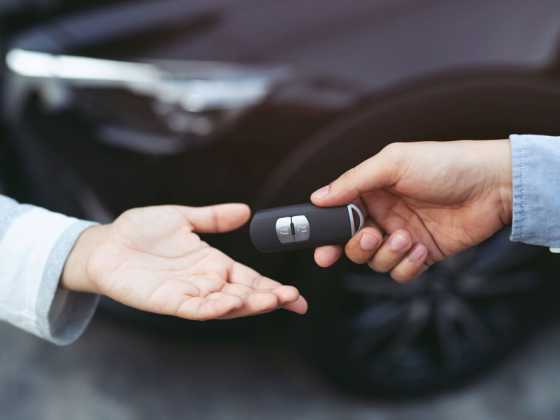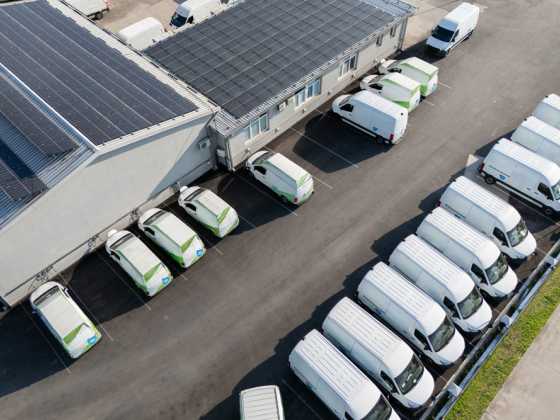Telematics: the future of fleet management?
New data suggests that drivers are becoming more receptive to telematics and mobile applications, which can lead to increased driver safety, fewer accident claims and increased fuel efficiency
 Telematics is playing an increasingly important role in fleet and driver management, with organisations utilising the technology to improve safety, productivity, profitability and make fleets more eco-friendly.
Telematics is playing an increasingly important role in fleet and driver management, with organisations utilising the technology to improve safety, productivity, profitability and make fleets more eco-friendly.
In-vehicle telematics can work through dedicated devices, or through an increasing amount of apps for mobile devices. Using GPRS, GSM and GPS connections, telematics technology provides drivers with access to important information, such as the company fleet policy, vehicle information and regularly used services.
Real-time data can be captured and converted into useful information regarding driver behaviour, vehicle mileage, fuel efficiency, accident analysis and vehicle localisation. This data is then securely transmitted to an online database and can be accessed through an online portal.
Corporate Vehicle Observatory Barometer
The Corporate Vehicle Observatory (CVO) Barometer interviewed more than 4,500 fleet decision makers across 15 countries, asking them about their use of telematics and mobile apps for fleet management.
The research split up companies due to size, with companies with less than ten employees and companies with 10-100 employees classed as small companies, and companies with 100-999 and over 1000 employees classed as large companies.
44 per cent of UK-based respondents from large companies found mobile phone apps a useful fleet management tool, as well as 27 per cent in small companies.
The picture is a similar one in other European countries, with 41 per cent of larger companies and 28 per cent of smaller companies claiming they found apps useful.
The use of apps by both drivers and fleet managers is becoming more common, with around a third of businesses surveyed in the UK now allocating smartphones and tablets to their employees, providing access to a range of downloadable apps.
The research also breaks down what fleet decision makers deem to be the most useful app functionality. The ability to access the company car policy and the ability to remotely book services through an app were found to be the most useful to larger companies, with the company car policy again being a priority for smaller companies, as well as the ability to locate regularly used services.
Global Mobility Monitor Survey
LeasePlan commissioned similar research in its Global Mobility Monitor survey. The research followed the deployment of telematics among 3,377 lease drivers (predominantly of light commercial and service vehicles) from 20 countries worldwide.
38 per cent of drivers questioned said that telematics would alter their driving behaviour if installed in their vehicle. 14 per cent responded saying that it would encourage them to drive more cautiously, while seven per cent stated they would drive more slowly. This response prompted LeasePlan to conclude that in-vehicle telematics technology has the potential to positively affect driver safety by influencing driver’s behaviour behind the wheel.
The survey also found that 17 per cent of respondents would pay more attention to fuel consumption if the technology was present in the vehicle, which suggests that telematics may have the potential to encourage a reduction in fuel consumption and, as a result, CO2 emissions.
Pilot projects
A pilot project by LeasePlan Italy echoed the Global Mobility Monitor Survey’s findings and found that telematics technology has the potential to enable better risk management, improve driver safety and reduce costs. Compared to 2013, the accident claim frequency of a fleet of 16,000 vehicles (12,800 LCV 3,200 cars) equipped with telematics devices decreased by almost one third in 2015. LeasePlan Italy also found that in-vehicle telematics substantially improved the recovery rate of stolen vehicles, which increased from 14 per cent to 86 per cent.
Additionally, LeasePlan Spain recently developed a driver application based on telematics data, allowing approximately 7,000 drivers (75 per cent passenger cars, 25 per cent LCVs) to monitor their own driving behaviour. The initial results were promising, with a 12 per cent reduction in insurance claims and an eight per cent reduction in fuel consumption.
Over half of respondents to the Global Mobility Monitor survey (55 per cent) said they would feel comfortable having a telematics device installed in their car. This suggests that while telematics, in-vehicle devices and mobile apps are becoming more accepted, more can still be done to improve uptake and encourage drivers to utilise the technology, which has the potential to improve fleet management and safety.
Further information
tinyurl.com/pstpcnj






